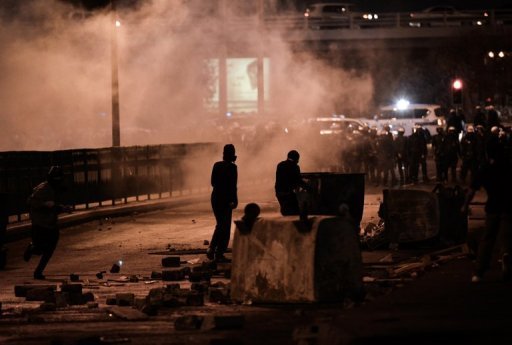CAIRO: A group of high school students attempted to collectively commit suicide because the questions on their thanaweya amma exam were too difficult. Related incidents simultaneously took place throughout the country last weekend, as students and sometimes their parents revolted in protest over the difficulty of one of the thanaweya amma exams.
It may sound strange or odd, but it is definitely not far-fetched. The type of pressure exerted on thanaweya amma students and the emphasis put on how their grades in this two-year program will determine their future make this reaction more comprehensible.
Granted, this type of escalated response is unheard of, at least in recent years, but it s nonetheless expected.
Thanaweya amma is one of the most lucrative businesses in the country if you are a teacher, but it is also one of the most financially draining experiences if you are a parent. Private tutoring has become a requirement for earning this certificate and teachers fees reach a new all-time high every year.
The impact of these exams falls squarely on the entire household. For students, parents and siblings, a state of emergency is declared at the homes of all thanaweya amma students, sometimes a year in advance. Months before the school year starts, reservations are made to guarantee the student has a place with certain private tutors. The parents social life is put on hold or kept to a minimum at the very best. The rational being, if you visit people they ll return the visit and you don t want any distractions around your children during high school.
If students are not worried or frightened enough, their parents and everyone in their families make sure that they get that way. Study harder because your grades will decide which university you will go to, is a sentence all thanaweya amma students are too familiar with; they ve been hearing it since their first day at kindergarten. Real-life stories of those who have failed in life because they couldn t get the required grades to study at the college they wanted are fed to children at an early age.
With almost decade-long grade inflation, students are now required to score over 97 percent of the total grades to get into a decent school. Out of the unchallenged belief that high school grades have an irreversible effect on their future, many fall into depression after scoring less than expected in thanaweya amma; by social standards, they are failures.
As the exams draw nearer, students and their parents get more agitated as the level of emotional and physical stress rises. With this type of tension, some students suffer insomnia before their exams because they are too anxious to sleep.
Outside the schools in which the finals are held parents can be seen shaking in anticipation as some of them share stories of how they sold their valuable belongings just to get their children through the two-year program. Some of the parents attacked the schools in which the exams were held when they heard about the difficulty of last weekend s exam. The subject was statistics and economy, which ironically students opt for in order to get higher grades.
In its usual and repetitive response, the Ministry of Education said that the questions on the exam were in abidance with all related standards. A monitoring committee said that an average student could answer 75 percent of the questions, an above average student could answer 90 percent and a distinguished student could answer 100 percent.
This means that the above average and the distinguished students would do more than rewriting what they had memorized, possibly demonstrating that they understood what they ve been studying and could take it a step further with analytical questions. Judging from personal experience, this has never been the case on these tests and in reality analytical thinking or developing an understanding instead of mere memorizing are not encouraged in thanaweya amma.
The key to success is to shut off your mental functions, except those related to memorizing. Even the curriculum emphasizes this. Studying literature, for example, means that you know by heart the characteristics of each literary school and interpret the poems and texts the same way your schoolbook or teacher tells you to.
The notion that students would try to understand or interpret poems on their own is unheard of; I only learned about this possibility in a non-Egyptian university later on. Students wouldn t dare consider reading a book not assigned by their teacher, even if it is relevant to their studies, as that would only distract them from memorizing their schoolbooks.
With such a mentality, which basically instructs that you listen and obey and never dare to think, as teenage students realize more and more that they carry their own fears about the future and their parents’ expectations (they never stop reminding their children of the importance of getting astronomically high grades), these 17-year-olds crack under the pressure. Consequently, the too-involved parents and their inherited fixation on the frightening thanaweya amma leads to the same desperate reactions to stressful situations. It s not just Operation Destruction of Minds anymore; it is Operation Destruction of Souls as well.
Analysts and social commentators have long called for a change in the thanaweya amma nightmare. But like all calls to develop and better the education system in Egypt, this one fell on deaf ears. The Ministry of Education keeps making promises but there are never results. Even the changes in the curriculum are proving superficial and ineffective within a system that is highly resistant to change.
The problem continues and sometimes the solutions the ministry offer make matters worse, like extending the thanaweya amma nightmare from one year to two. All I can think about is what my 10-year-old cousin, who was devastated by losing two marks on a third grade exam, will do in thanaweya amma.

